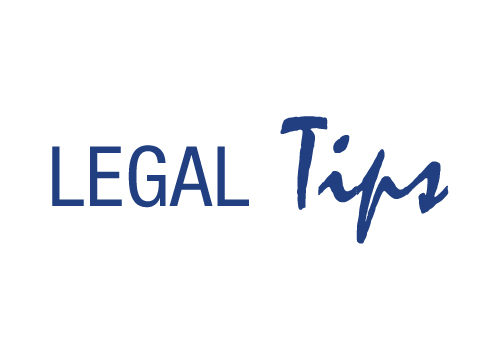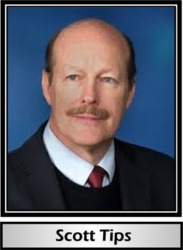Editor’s Note: This article is intended for information purposes only. Because state and municipal laws vary greatly, as do the circumstances of individual cases, readers are advised to contact an attorney for specific legal advice. © Scott C. Tips 2012
Not too long ago, I was at the Clark’s Nutrition store in Palm Desert, CA. Well-stocked and so clean you could eat off of the floor, this store had another equally impressive side to it that caught my eye: a Value Added Information Center. Not only could you buy what you needed for your body, but you could also get what you needed to nourish your mind.
And by that, I do not mean just “health” information. Most stores have that information in abundance. No, Clark’s also had well-presented shelves full of “activist” information. Take your pick. It was all there. And how to protect your health rights from the constant encroachment with which we are faced was right at the top of the list. I appreciated very much that Clark’s took this extra step to keep its customers informed on those political issues that affected my right to choose the foods and supplements that I wanted.
Your Customers Need This Information
As interested in health and nutrition as your customers might be, they are not immune to the influences of a mainstream media that constantly promotes pharmaceutical drugs and denigrates dietary supplements. Whether it is The Reader’s Digest front-paging its viciously anti-supplement article entitled, “The Vitamin Scam,” in its April 2010 issue or the numerous other constant attacks on supplement safety and efficacy that we face daily, they all will have a negative impact on your sales unless you address and refute these attacks.
Too, this misinformation—some would even say disinformation—can come from unexpected quarters. Very recently, the University of Connecticut attacked a famous researcher, Dr. Dipak Das, Ph.D., for allegedly having falsified his world-famous research on resveratrol. The charges are, in my opinion, false; but that has not stopped the University from trumpeting to the world that his resveratrol research is defective, a charge that even nutrition-challenged Rush Limbaugh blindly parroted from his radio throne. The resulting decline in resveratrol sales was abrupt and substantial.
If you are not alert and prepared to address these kinds of attacks, then you will experience a negative impact on your sales. But your response cannot just be providing leaflets or other literature on the health benefits of those attacked nutrients. First of all, the leaflets will, by and large, only be read by those who are relatively immune to the mainstream media’s bias. The ones that the mainstream media kept away from your store will never be reached.
You Need to Provide This Information
In an increasingly secular world of whole-food sales, you might be tempted to put your nose down, ignore the political world swirling around you, and just focus on sales and marketing. That would be a mistake. A Big Mistake. To build and keep sales, store owners and managers very unfortunately need to be alert to the vagaries of politics. As the saying goes, “You may have no interest in politics, but politics has an interest in you.” It not only will find you, but it is finding you right now.
Just remember as one important example that the U.S. Food and Drug Administration (FDA)’s draft Guidance to Industry on New Dietary Ingredients is still hovering over our heads, waiting to snatch away literally many thousands of supplements that are on your stores shelves right now. How many of you are taking action right now to thwart the FDA? To protect your business? How many of you have activist literature on your check-out counters to stop the FDA? And how many of you know that you can write to ct@thenhf.com (or call 1-626-357-2181) and for a small donation to cover costs get that literature immediately shipped to you?
The drug companies spare no effort in pushing their pro-drug agenda in the halls of Congress and in the dark corners of the FDA’s offices, so why should you? We need to actively promote our pro-health agenda at every turn. As self-serving as it seems, you must do this to survive.
Your Sources
The Council for Responsible Nutrition (www.crnusa.org) and the Natural Products Association (www.npainfo.org) are two organizations that provide useful information on nutrition in general and supplements in particular that you can use to educate your customers and keep them in the fold. Another major source of valuable information is this very publication—WholeFoods Magazine—that you are now reading. Whether it is Dr. Richard Passwater, Ph.D.,’s interviews or other articles in the magazine, you can find useful information in every issue that will help you to protect your sales in diverse ways that you may never have imagined.
This is not a commercial plug, it is simply reality. You need to stay informed, and being informed you then need to convey that information to your customers in a positive way that will motivate them to be pro-active in defending their nutritional supplies, ergo your store. This last point, however, is critical.
The Final Analysis
It is not enough for your loyal customers to be informed. They must be given the tools to take the fight back to those who would remove our supplements and other means to maintain and enhance our health. You absolutely cannot afford to turn a blind eye to this dimension of your business.
Health-freedom organizations such as the National Health Federation (www.thenhf.com) can only do so much. Dependent upon consumer donations, they do not always have the means alone to do all that is necessary. It is really up to you to preserve your own business by taking proactive steps to arm your  customers with the tools to enable them to sally forth and protect themselves and their rights and, in so doing, to protect your business. The choice is yours; but, then, if you want to stay in business, it is really not a choice at all. WF
customers with the tools to enable them to sally forth and protect themselves and their rights and, in so doing, to protect your business. The choice is yours; but, then, if you want to stay in business, it is really not a choice at all. WF
A graduate of the University of California at Berkeley Law School, Scott C. Tips currently practices internationally, emphasizing Food-and-Drug law, business law and business litigation, trade practice, and international corporate formation and management. He has been involved in the nutrition field for more than three decades and may be reached at (415) 244-1813 or by e-mail at scott@rivieramail.com.
Published in WholeFoods Magazine, April 2012










